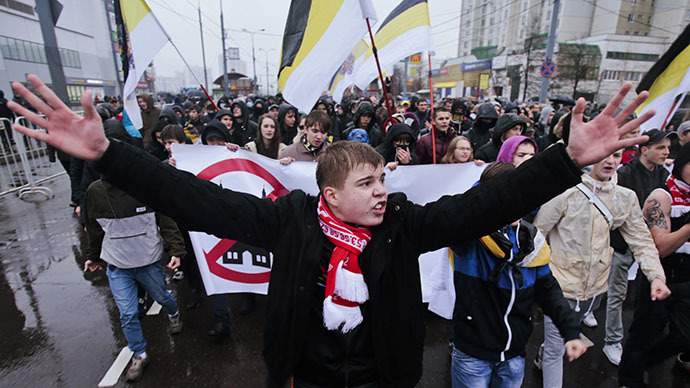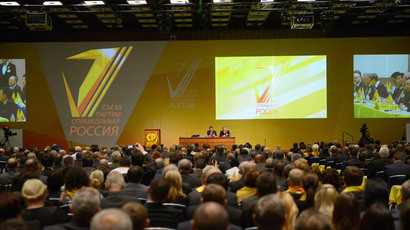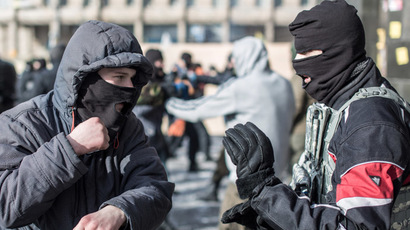Ukraine turmoil turns Russians off nationalism - survey

Russians believe the recent regime change in Ukraine was a nationalist and fascist coup, and its consequences have already changed attitudes towards nationalist groups inside Russia and abroad, according to the latest research.
The Politech agency has prepared the research paper ‘Ethnic issues in Russia in the context of Ukrainian crisis’ for the Public Chamber, Kommersant daily reports.
According to the poll, 53 percent of Russians understand the recent events in Ukraine as a nationalist coup and not as a democratic revolution. At the same time, 49 percent of respondents in Russia said that ethnic Russians in Ukraine should not form their own nationalist groups, but instead fight against all manifestations of nationalism.
Most Russians also said they did not support introducing visa regime with the ‘brotherly’ Ukrainian nation.
The attitude to Russian domestic nationalists has also changed for the worse – 58 percent of respondents described it as negative, compared to about 50 percent one year ago.
The Politech analysts noted that ethnic Russians were slightly more tolerant of nationalism than representatives of other peoples of the Russian Federation, but even among them the negative attitude to nationalism was dominant. When poll participants were asked to describe their current political preferences, only 2.5 percent said they would vote for a nationalist party.
However, the largest group - 35 percent - said they had no political preferences or chose not to share them with the researchers. Of those who did make up their mind, the most popular political sentiment was liberalism, with 21 percent.
This was a striking fall compared to the research made on the Public Chamber’s orders in mid-2013. That poll found that nationalists could get about 10 percent of seats at the 2016 parliamentary poll. Before that the situation was even more different – the Levada Public Opinion Center demonstrated the data according to which the non-existent ‘Nationalist Party’ ranked second in popularity, losing only to the centrist-conservative United Russia.
The Politech researchers said the changes were caused by the situation that has developed in Ukraine after the nationalist groups led the current regime to power, and also the persistent anti-nationalist campaign in the Russian mass media.
“Russians have witnessed on Ukraine’s example that the ethnic issue carries a great charge of potential conflicts and its irresponsible stirring can put a country on the brink of a civil war,” the paper reads.
Russian NGO Sova that specializes on monitoring of ethnic tensions agreed with the conclusions of the Politech analysts. “We are also recording a decline in xenophobia levels, but it looks like a propaganda effect and therefore a short-term phenomenon,” the head of the group, Aleksandr Verkhovsky, told Kommersant.














